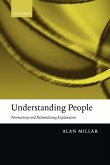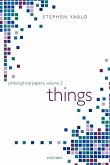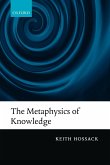Mark Schroeder explores the semantic commitments of metaethical expressivism, the heir to the noncognitivist theories of Ayer, Stevenson, and Hare. He shows how to solve many of the open problems facing expressivism, but this only highlights further and deeper problems for the view. Expressivism, he argues, is coherent and interesting, but false.
Expressivism--the sophisticated contemporary incarnation of the noncognitivist research program of Ayer, Stevenson, and Hare--is no longer the province of metaethicists alone. Its comprehensive view about the nature of both normative language and normative thought has also recently been applied to many topics elsewhere in philosophy -- including logic, probability, mental and linguistic content, knowledge, epistemic modals, belief, the a priori, and even quantifiers.
Hinweis: Dieser Artikel kann nur an eine deutsche Lieferadresse ausgeliefert werden.
Expressivism--the sophisticated contemporary incarnation of the noncognitivist research program of Ayer, Stevenson, and Hare--is no longer the province of metaethicists alone. Its comprehensive view about the nature of both normative language and normative thought has also recently been applied to many topics elsewhere in philosophy -- including logic, probability, mental and linguistic content, knowledge, epistemic modals, belief, the a priori, and even quantifiers.
Hinweis: Dieser Artikel kann nur an eine deutsche Lieferadresse ausgeliefert werden.








